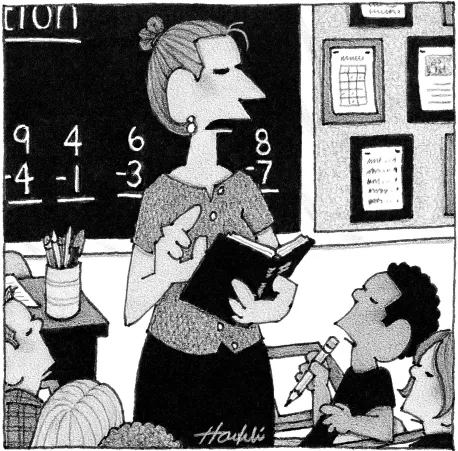![]()
ON ESCALATION OF COMMITMENTS
Dear Dan,
Every year, when Christmas comes, I feel obliged to send Christmas cards to everyone I know, and every year, the number of cards I send gets larger and larger. It is now officially getting out of hand. Can I switch to sending cards only to my really close friends?
— HOLLY
A few years ago I was ordained by the Church of Spiritual Humanism, so I feel that I am in the position to tell you that it is perfectly fine for you to send cards only to your good friends. As a social scientist, I don’t think anyone left off the list will be offended and many of them might not even notice. Taking this step will also reduce their feeling of obligation to send you a card next year—so in the process you are also helping them with the same problem. And if you really want to eliminate the Christmas-card frenzy, there is always Judaism.
Friends, Expectations, Happiness
![]()
ON THE ART AND JOY OF SAYING NO
“And once they’d finished everything on their to-do lists, they lived happily ever after.”
Dear Dan,
I’ve recently been promoted, and I now receive all sorts of requests for things that have little to do with my love for my job. I recognize the importance of helping out colleagues and the organization as a whole, but these other activities are taking up too much of my time and making it impossible for me to do my job. How can I set my priorities better?
— FRANCESCA
Ah yes—the perils of success. Promotions usually sound good, but once we get them, we often realize that they come with extra demands and annoyances. (Oddly, we don’t seem to remember this lesson from promotion to promotion, so each time we’re surprised when we discover these extra costs.)
Back to your question. Here’s what I suspect your new life looks like: every day, nice colleagues who you want to help ask you to do something for them. On top of that, the request is usually for some time that is far into the future—say a month from now. You look at your calendar and it looks rather empty, so you say to yourself, “Since I’m mostly free a month from now, how can I say no?” But this is wrong. Your future is not really going to be free; the details are just not yet filled in. When the day arrives, you will have all kinds of things to do and your plate will be overflowing—even without the extra demands of this request. And at that point you will wish that you hadn’t said yes.
This is a very common problem, and I would like to propose three simple tools that can help you better stick to your desired priorities.
First, every time a request comes in, ask yourself what you would do if it was for next week. Framed this way, you would look at your schedule and work out if you would cancel some of your other obligations to make room for this new request. If you would cancel some things in order to make time, go ahead and accept. But, if you would not prioritize it over your other obligations, just say no.
As a second tool: when you receive a request, imagine that you look at your calendar to see if you can comply and you discover that you are fully booked that day without the ability to switch anything around—maybe you are out of the office. Now, try to gauge your emotional reaction to this news. If you feel sad, you should go ahead and accept the request. On the other hand, if you feel relieved that you can’t do it, turn it down.
Finally, practise using one of the most beautiful words in English: “cancel-elation,” the glee we feel when something is cancelled. To use this tool, imagine that you accepted this particular request but it later got cancelled. If you can taste joy, you just experienced cancel-elation and you have your answer.
Workplace, Decisions, Long-Term Thinking
![]()
ON NETFLIX DISSATISFACTION
“If you had ten eggs in a basket and two fell out and broke, how sad would you be?”
Dear Dan,
I am a longtime Netflix user. Recently, Netflix removed about 1,800 movies from its offering, while adding a few very good ones. I know I probably would have never watched any of those 1,800 movies but I am still upset about this and I am seriously considering leaving Netflix. Why do I feel this way?
— KRISTEN
As a movie fan myself, I appreciate your conundrum. The basic principle behind this emotional reaction to the elimination of these movies is loss aversion. Loss aversion is one of the most basic and well-understood principles in social science. The basic finding is that losing something has a stronger emotional impact than gaining something of the same value. Going back to Netflix, the implication is that having movies taken away from your account is perceived as a loss and because of that, it feels much more painful. The impact of loss aversion could be so strong that losing the not-so-great movies can still be more upsetting than the joy of getting movies that are objectively better.
One other implication of loss aversion is that while old Netflix users, such as yourself, will view the new collection of movies on Netflix in a somewhat negative and loss-aversive way, new users who just see the new set of movies without the experience of having anything taken away from them will view the updated offering in a much more positive way.
With this in mind, my suggestion is that you try to think about Netflix more like a museum—as a service that provides you not with particular movies but with an optimal, curated variety of entertainment. With museums, we don’t think about ourselves as owning any of the art, so we aren’t upset when the exhibits change. My guess is that if you manage to reframe your perspective this way, you will enjoy Netflix to a larger degree.
Entertainment, Loss Aversion, Value
![]()
ON DIETING
“I’m not eating. I’m self-medicating.”
Dear Dan,
This is probably a very common question, as everyone seems to be on a diet at some point. The question is: why do we let the immediate pleasure of eating overwhelm our long-term considerations? Why do we sabotage our health over and over? And how can we tame our desire to eat and overeat?
— DAFNA
As you pointed out, dieting basically goes against our inherent nature. It’s often the case that we have fantastic ideals about our future selves. What we will do, what we will not do, what decisions we will make, and what decisions we will not make. But when it comes to our everyday decisions, often the short-term considerations prevail and our long-term hopes and wishes get left behind (sometimes they even move to the attic). When we’re not hungry and someone asks us how many desserts we will eat over the next month, we might think that we will have one or maybe two at the most. However, when we’re at a restaurant and the waiter places the dessert menu (or even worse, the dessert tray) in front of us and we see our favourite dessert listed as an option, we get a very different idea about the importance of having dessert right now. We see the triple chocolate cake, and our priorities change. In behavioural economics, we call this “present-focus bias.”
On top of that, a diet is really a difficult thing to stick to—much more difficult than quitting smoking, for example. Why? Because with smoking, we are either smokers or nonsmokers. With dieting, we can’t easily separate ourselves into eaters and noneaters. We have to eat, and so the question becomes: what do we eat and when exactly do we stop? And because there are no clear-cut stopping rules, it becomes very hard to stick to any particular diet.
So what can we do about this problem? The simplest approach is to realize the extent of this challenge, and try hard from the beginning to avoid exposing ourselves to the types of foods that are detrimental to our diet. If we have no cake at home, we’ll probably eat much less cake. And if we replace that cake with fresh carrots, we’ll eat carrots because they’re available. Maybe we can decide that dessert is just unacceptable. Or maybe that we can have dessert only on Sundays. Another useful and relatively simple rule is not to let any soft drinks and boxed snacks into our homes. Such an approach, of applying strict, religious-type rules to dieting, can be very useful. By adopting such rules we will be able to better recognize at any point if we are sticking to our long-term plans or not, and this should help us reinforce our desired behaviour.
Dieting, Self-Control, Rules
![]()
ON FORGOTTEN AND FORGIVEN LOANS
Dear Dan,
Many years ago a friend of mine asked me to lend her a substantial amount of money. At the time I was happy to help her, but it has been years since I lent her the money, she has never mentioned it, and the shadow of this exchange is clouding our relationship. What should I do? Should I say something?
— MARIEL
Because you’re the one who did her a favour and loaned her the money, you probably think that she is the one with the obligation to bring up the topic. This might be true from a moral perspective, but the problem is that once you lent her the money, you shifted the power in your relationship, and this asymmetry is making it m...



